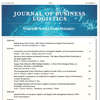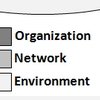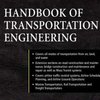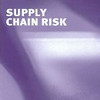 How far does corporate social responsibility go? While corporate social responsibility looks good on paper, how far are companies willing to not just talk the talk, but also walk the walk? For example, what should a company do if the authorities in a foreign country are clearing away residential areas (and removing residents without any compensation) to make room for industrial development that may allow said company to expand its offshored manufacturing facilities? Interfere? Do nothing? Milton Friedman is supposed to have said that “The business of business is business”, a quote that is often seen as the direct opposite of social responsibility. Thus, should the company even care?
How far does corporate social responsibility go? While corporate social responsibility looks good on paper, how far are companies willing to not just talk the talk, but also walk the walk? For example, what should a company do if the authorities in a foreign country are clearing away residential areas (and removing residents without any compensation) to make room for industrial development that may allow said company to expand its offshored manufacturing facilities? Interfere? Do nothing? Milton Friedman is supposed to have said that “The business of business is business”, a quote that is often seen as the direct opposite of social responsibility. Thus, should the company even care?
Corporate social responsibility in supply chains
Corporate social responsibility may seem unrelated to supply chain risk at first, but it’s not. It is inextricably linked to supply chain risk. Product recalls are a supply chain risk, and handling these recalls, let alone preventing them from happening is most definitely part of supply chain risk management. In the above case, as I will explain below, taking a stance on corporate social responsibility grounds may actually threaten the supply chain, and social responsibility becomes a risk in itself. Maybe Friedman was right, and business should be about business only? Perhaps not, and this article explains the three dimensions or, as it is often said, the triple bottom line of sustainable supply chains.
A hypothetical example
The opening question was recently posed in the Norwegian newspaper “Dagens Næringsliv” (DN), the Norwegian equivalent of the “Wall Street Journal”, see link below for my Norwegian-speaking readers. The hypothetical example cited in DN actually referred to a ship owner, and the foreign authorities were harbor authorities, who were expanding a harbor in order to modernize its operations. While looking forward to a more efficient harbor, the company has just learned that the residential areas to be cleared are the homes of the poorest of the poorest who are simply removed without giving them any new place to live or any form of compensation. Add to that, the hypothetical company has just joined Global Compact, a UN strategic policy initiative for businesses that are committed to aligning their operations and strategies with ten universally accepted principles in the areas of human rights, labour, environment and anti-corruption. From this it would follow that the company should protest against these expansion plans. However, a formal protest may harm business, as the harbor authorities may react negatively to it and purposely (but not officially) delay the loading and unloading of the company’s vessels, leading to increased costs and lost time. What should the company do?
Responsibility and reputation
Øyvind Kvalnes, the article author who asks this question is Associate Professor at BI, the Norwegian School of Management, and he actually posed this question to his Master students. Most of them responded that the company should actively deal with this issue, not just from an ethical point of view, but also from a long-term economic perspective. The general consensus among the students was that the market would be more likely to reward action and punish re-action. Moreover, today’s young people would want to work in a company that takes it social responsibilities seriously. Would they?
The four responsibilities of business
Underpinning his views, Kvalnes cites an old paper by Archie B Carroll from the University of Georgia, written in 1979: A three dimensional model of corporate social performance. In the paper, Carroll lists what he calls the four social responsibilities of business: Economic, Legal, Ethical, and Discretionary responsibility.
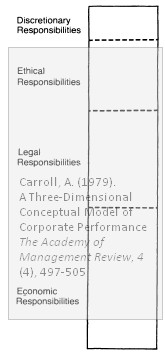 Economic Responsibility:
Economic Responsibility:
The first and foremost social responsibility of business is to produce goods and services that society wants and to sell these at a profit.
Legal Responsibility:
Society expects business to fulfil its economic responsibility, but within the framework of legal requirements.
Ethical Responsibility:
Although the first two already embody ethical norms, society has non-codified ethical norms which expect certain behaviors and attitudes in certain situations and which change over time and debate.
Discretionary Responsibility:
These are voluntary actions, guided only by a business’ desire to engage in social roles that are not mandated, required by law, and not even generally expected.
Importantly, Carroll says, these four categories are not mutually exclusive, nor are they intended to portray a continuum with economic concerns on one end and social concerns on the other.
Social responsibility in practice
Based on these responsibilities, Carroll then describes four possible reactions the company can use in this case: React, Defend, Accommodate and Lead.
React:
Deny any social responsibility, do nothing, saying that this is the local authorities responsibility, not their’s.
Defend:
Admit that it has responsibility, but do as little as possible, just enough to maintain its reputation.
Accommodate:
Accept responsibility, and follow the advice of pressure groups and lobbyists who want the company to take action.
Lead:
Be responsible and take action before the media gets wind of the story, and go further than what is expected.
Conclusion
The four responsibilities can provide a useful framework for any company that decides to do business in foreign countries, where politics and ethics don’t always go hand in hand and where corruption is the order of the day. Many companies have already discovered the competitive advantage of claiming to be socially responsible. How many companies are willing to go the whole nine yards. Are you?
References
Carroll, A. (1979). A Three-Dimensional Conceptual Model of Corporate Performance The Academy of Management Review, 4 (4), 497-505 DOI: 10.2307/257850
Author link
- uga.edu: Archie B Carroll

